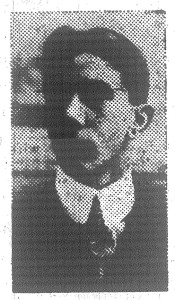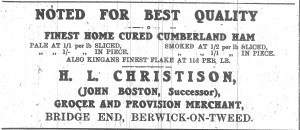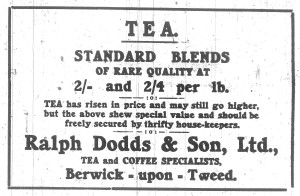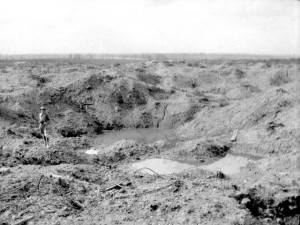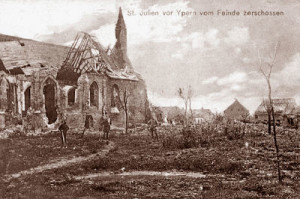BERWICK ADVERTISER, 18 MAY 1917
LOCAL NEWS
Berwick Bowling Club. – The green was opened for play on Thursday afternoon 10th May with the customary match between the teams representing President and Vice-President. The weather unfortunately broke down putting a stop to the continuation of the game. Mrs Black and Mrs Logan provided afternoon tea in the Club House and their hospitality was much enjoyed. There are to be no matches engaged in this season. The competition for the championship will proceed and other competitions will be duly notified on the club board during the season. Military members will be welcomed and can be introduced by members free of charge.
Agreeable Work for the Children.– The children of the country lanes and fields are asked by the organisation directed by Mrs Tennant to take their part in National Service, and during this summer to gather the tufts of sheep’s wool from the hedges and thorns of the countryside. This pure wool is much needed for warm blankets and clothing for our sailors and soldiers. As an instance of what can be done, the Hon. Mrs Carpenter and three little children the other day collected six ounces of white wool in a little more than an hour in a Hertfordshire lane down which a flock of sheep had been driven. Another child made a collection of four ounces of black wool only. It is hoped that schoolmistresses and others in authority in the villages will prompt the children to collect. The wool has a high and increasing market value and will be sold to the weavers on behalf of the Red Cross.
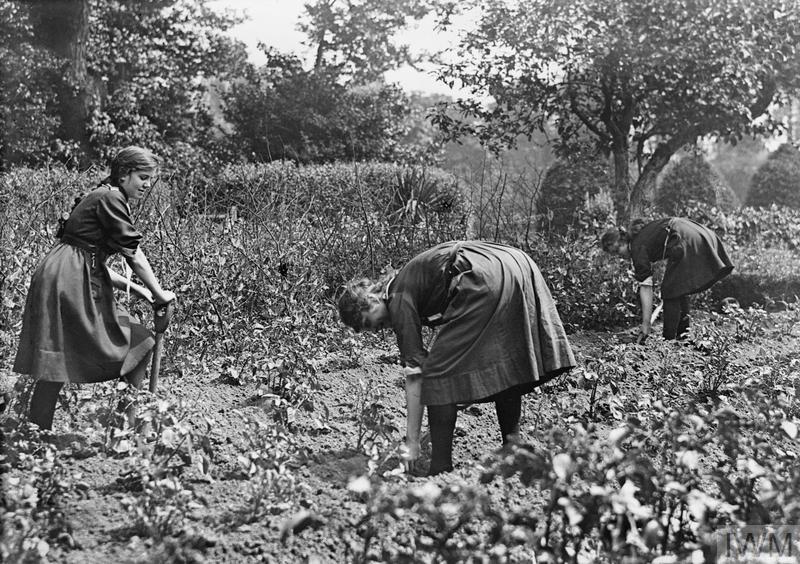
N.E.R. and Women Guards. – It has been decided not to proceed further with the experiment of utilising women as passenger guards on the N.E.R. If, however, owing to pressure from the Army Council to release additional men, it is again desired to renew the experiment, the mater, it is stated, will be brought before the men’s Special War Arrangements Committee.
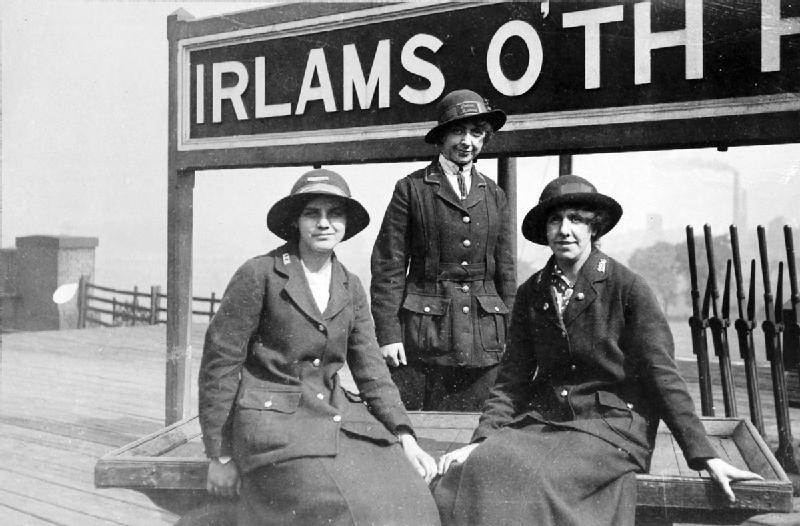
BELFORD MAN HOME ON LEAVE
Private Robert J. Bolton, youngest son of Mr R. Bolton, Watchmaker and fruiterer, High Street, Belford, is at present home on leave which he finds little pleasure in owing to it having been granted him to attend the funeral of his dear mother. Private Bolton enlisted in October, 1914, trained till the following January at East Boldon and then was sent to France. Shortly after arrival he found himself facing the Germans which at that time far exceeded the Allies in number.
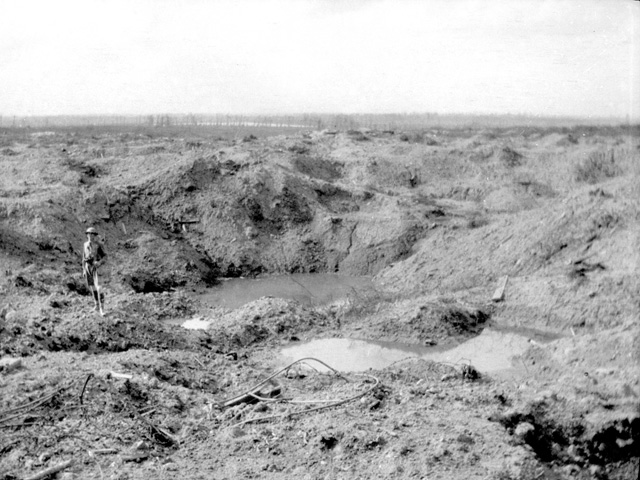
The brave old boy was at the taking of Hill 60 and in several other desperate fights all of which he came safely through, but being attacked by rheumatism was sent to hospital and though greatly recovered he has been found fit to go into the line again. In civil life Private Bolton was a gardener, but some little ago gave up that form of employment and went to the collieries where the rate of wages were much higher than in his own trade. He has a wife and several children all whom are eagerly awaiting the cessation of hostilities and the safe return of daddy. That their wish may soon be fulfilled is what we most earnestly desire.
BERWICK SOLDIERS HOLD A “FREE AND EASY,”
INTERESTING MEETING AND CONCERT,
On Tuesday night last there was a free and easy smoking concert in the Navy and Army Recreation Rooms, Hide Hill, when the Concert Hall was packed with an appreciative audience of Soldiers.
Regimental Sergeant Major Dow was in the chair and at a suitable interval presented the prizes won in the competition held during the winter months, the prizes were medals, these had been specially designed and made for the occasion. The inscription on them ran “Recreation Rooms Berwick-on-Tweed, “this surrounding the Berwick coat of arms made a pretty medal, which was highly spoken of by the lucky winners.
R.S.M. Dow, who made the presentation said, The pleasant duty of presenting these medals on the successful competitors has fallen to my lot. The Recreation Room Committee, during our stay in Berwick, have sprung many pleasant surprises on us in the way of competitions, concerts, etc., and the gift of these beautiful medals is only one more to the number. I feel sure they will be very much appreciated by the winners, not only in account of their having been successful in the competitions, but also in future years as a souvenir of their stay in Berwick-on-Tweed, either to hang from their watch chains, or, as has been suggested, to give to their best girls to wear as a brooch, (laughter and applause). My only caution is, – Be sure that it is “the” best girl (laughter) as I feel sure that you would be very sorry if you gave it to the wrong one, and the medal passed out of your possession altogether. (Laughter and applause). I think it only right that you should know that, for the medals, you are chiefly indebted to a well-known Berwick gentleman viz. Mr Redpath, who, when the subject was discussed, remarked to Mr Erskine and Mr Boal “You find the Medals and I will find the money”. (Applause).


